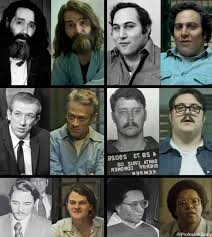The Impact and Insights of Mindhunter in True Crime

Introduction to Mindhunter
Mindhunter, a psychological thriller series on Netflix, has captivated audiences since its release in 2017. Based on the true crime book “Mindhunter: Inside the FBI’s Elite Serial Crime Unit” by John E. Douglas and Mark Olshaker, the series delves into the minds of serial killers through the lens of FBI agents in the late 1970s. Its portrayal of criminal psychology and law enforcement has sparked discussions about the complexities of crime and the human mind.
The Premise of Mindhunter
The narrative primarily follows two FBI agents, Holden Ford (played by Jonathan Groff) and Bill Tench (played by Holt McCallany), along with psychologist Wendy Carr (played by Anna Torv). They embark on a groundbreaking endeavour to interview imprisoned serial killers which eventually leads to the development of the Criminal Profiling Program. The show’s authenticity is underscored by the fact that many of the interviews depicted are based on real conversations that Douglas had with notorious criminals such as Edmund Kemper and Jerry Brudos.
Cultural Relevance and Reception
Mindhunter’s impact extends beyond mere entertainment; it has reinvigorated public interest in true crime documentaries and narratives. The meticulous attention to detail in the series—ranging from its direction by David Fincher to its haunting cinematography—gives viewers a chilling glimpse into the world of criminology. Critics have lauded it for its intelligent scripting and nuanced character portrayals. The show garnered critical acclaim, leading to various nominations and awards, further solidifying its position in the current television landscape.
Future Prospects
Despite its success, the future of Mindhunter is uncertain. As of October 2023, fans are eagerly awaiting information about a potential third season. David Fincher has expressed interest in continuing the series, though commitments to other projects have delayed production. The show’s exploration of the psychological aspects of crime coupled with real-life case studies indicates that, should the series be revived, it would likely continue to captivate and educate its audience.
Conclusion
Mindhunter stands as a significant study of both crime and filmmaking, merging factual historical events with dramatized storytelling. Its ability to engage viewers in discussions surrounding criminal psychology, morality, and the law reflects the show’s unique significance in the true crime genre. With an ongoing interest in serial crime narratives, Mindhunter not only entertains but also piques intellectual curiosity about the darker aspects of humanity.









